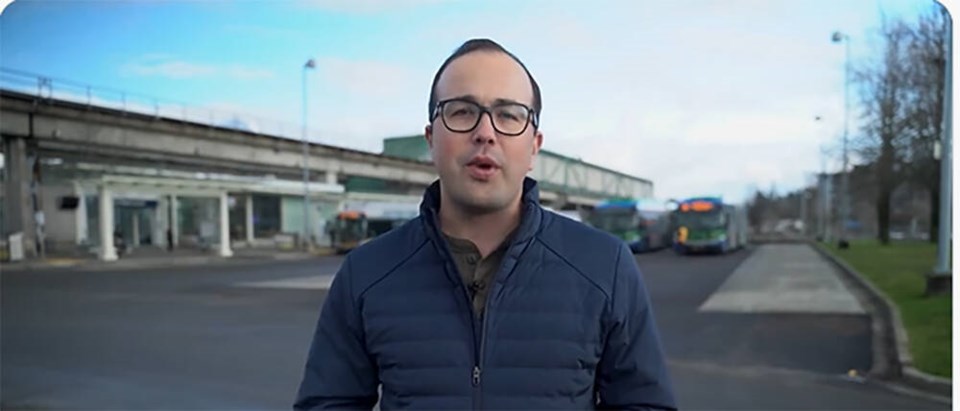B.C.’s population will hit almost eight million within 22 years, an additional 2.4 million people, compared to today’s population.
The numbers come from a new BC Stats report, which says the province’s population will grow by 44 per cent, to 7.9 million, by 2046.
B.C.’s current population is 5.5 million, said a release last week from the Ministry of Municipal Affairs.
Delta Coun. Dylan Kruger said he’s not surprised at the numbers.
“There’s no question … the growth is coming, whether we like it or not. People are moving to the Metro Vancouver region,” he said. “They’re moving to B.C. We owe it to society to build the homes and find the transit solutions to move those people, or our existing housing crisis, our existing transportation challenges, will only continue to get worse.”
Kruger supports the Mayor’s Council on Regional Transportation, part of TransLink, that is calling on senior governments to increase transit funding to keep up with the growing numbers.
He produced a video to support the council’s Access for Everyone campaign that urges people to sign a petition seeking more money from senior governments. In particular, he wants Delta residents to add their names.
Kruger says in the video the Metro Vancouver region, “will be home to a million new residents by 2050.
“But to build the transit our region deserves, we need senior government to step up and support new sources of funding,” he said.
According to the new BC Stats report, Sustaining Growth: Population and Demography for B.C. and Canada, 78 percent of immigrants who arrived between 2016 and 2021, settled in Metro Vancouver.
Access for Everyone says the transit system, “can’t keep up with demand as our region grows at a record pace, putting further pressure on affordability. Time is running out.”
The Access for Everyone plan, priced at $21 billion, calls for doubling bus service within a decade, (from 2022 levels) and adding nine new bus rapid transit lines.
In Delta, that means doubling the bus service and upgrading the new rapid bus service on Scott Road to bus rapid transit. Bus rapid transit means buses have their own roads or lanes, completely separate from traffic.
Kruger wants people to sign the petition, “so that our local MP and MLAs get the message.”
“The region’s residents can’t afford to take on the cost of upgrading our transportation network alone,” he said.
Kruger said the City of Delta’s latest numbers show that the city will have a population of 158,000 by 2051.
The city though needs senior government help with infrastructure costs, particularly transit, in order to handle the growth that’s asked to take on.
“We are expecting growth, but our growth in Delta is very modest compared to other parts of the region,” he said.
Mayors across Canada have been asking Ottawa to align its immigration policy with municipal housing starts, Kruger added.
“We need a coordinated approach when it comes to this country’s growth,” Kruger said, adding that Canada needs immigration because its population would decline otherwise.
People are needed to fill jobs in the labour market, such as health care and construction.
“So we need that growth … we do need better policy alignment to match the housing starts with federal targets.”
But Kruger said he’s focused now on achieving Delta’s target of creating 3,607 extra housing units within the next five years, as ordered by the Ministry of Housing last September.
Other parts of the Access for Everyone plan include building the gondola up Burnaby Mountain to SFU and planning for rapid transit to the North Shore.



